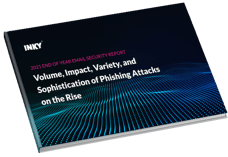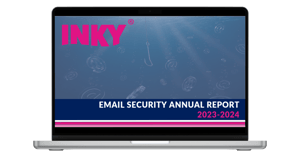Organizations of all sizes and across all industries are phishing targets. These attacks can be sophisticated and often difficult to identify. What can you do to avoid being the victim of a phishing attack? We've put together 5 quick tips that will help you avoid becoming the next victim for these cybercriminals. Share these tips on your social networks so we can stop the scammers, once and for all.
5 tips to avoid phishing scams:
1. Confirm important emails.
Confirm any emails regarding vendor payment changes, wire transfers, large purchases (gift cards), etc., "out of band" by calling or video chatting the sender before the transaction takes place.
2. Set up two-factor authentication.
Ask your IT department how you can set up two-factor authentication (2FA) for your work account. 2FA requires you to provide a second factor to login, such as a physical key, a code sent to your phone, etc. 2FA prevents someone who obtains your login and password from accessing your account.
3. Use forward, instead of reply on suspicious emails.
Rather than replying to a sensitive email, forward the email to the claimed sender with your reply. This good habit helps prevent VIP impersonation.
4. Never log in to a website by clicking a link to it from an unsolicited email.
Visit the website directly by typing in the URL (e.g., www.amazon.com) in your browser and log in from there. Never log in to a website by clicking a link to it from an unsolicited email. This is especially important for emails that ask for logins or request password changes.
5. Schedule an email threat analysis.
Talk to your IT department about setting up a free email threat analysis with INKY so they can see how vulnerable your organization is. It doesn't take long to set up and they will learn useful, actionable information. INKY is the new solution in the war against phishing.
For more email security tips and breaking news, follow INKY on LinkedIn.



